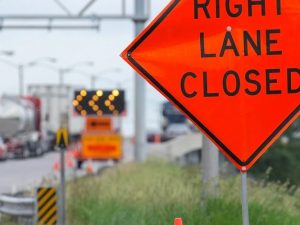
Is it worth buying a new car in today’s market?
Are you in the market for a brand-new car? It’s an exciting time, with a hot new set of wheels in your near future. However, the global auto market today is a changing beast, with higher prices for new models across the board and even increased maintenance costs due to the cost of living. So is it even worth buying a new car in this market environment?
For consumers who have the option to wait until the market shifts back in their favour, this may be a more preferable play. But if your lifestyle or family/work commitments are calling for you to buy a new car, however, then you may be wondering how best to make your purchase a worthwhile investment. This informative article will answer the question for you, so continue reading to learn more.
You’ll Need Insurance
If you buy a new car, you’ll definitely need motor insurance to protect your new investment. Yes, insurance is ultimately yet another additional expense, but the money you spend on your car insurance policy doesn’t hold a candle to the rates of vehicle repairs currently.
A comprehensive insurance policy is best for a new car. This type of cover will help cover you for any liabilities arising from damage to your car or another person’s car or property. For instance, if you crash into another car, your insurance will cover the costs of any damage experienced by the other party.
Without insurance, you may find yourself personally liable for the bill for repairs, which could be in the thousands or more. Imagine if you crashed into a Ferrari without insurance; the costs of repairs and sourcing rare Ferrari parts could bankrupt you. As a comprehensive policy also covers damage to your car, however, these policies can provide value if you write off your new car in an accident, ensuring that you can reclaim the value of your car or even secure a payout for a like-for-like model.
The cost of insurance is worth considering in today’s market. Insurance premiums can be expensive, and they are recurring monthly or annual expenses. When shopping for a new car, it’s worth researching the cost of insurance to see how much it will be. All insurance companies offer quotations on policies, which you can use to measure the cost involved. If you’re on a tight budget, you might consider third-party fire and theft insurance, which will cover you for third-party damage, fire damage and theft. However, this won’t cover your vehicle for damage to it, which is a major risk if you’re buying a new car.
The Cost of Fuel in Today’s Market
There are other costs of new car ownership in today’s market, which are steadily rising with inflation. Along with insurance, fuel is another major ongoing expense for most new car owners. Most people fill up their tanks once a week or once a fortnight, and depending on the size of your new vehicle’s petrol tank, this can range from $70-100 dollars a pop, depending on the price at the bowser or more. Add additional costs if you use premium fuel.
It’s definitely worth keeping an eye on the local fuel prices by using an application like Petrol Spy or by using some fuel retailers’ phone apps that offer price lock features so you can lock in cheaper fuel for when you need to fill up. Staying spend-savvy with your refuelling can help take additional pressure off your wallet after buying a new car.
It’s also worth paying close attention to the fuel price cycle, as fuel prices tend to increase in the lead-up to the weekend or before a long weekend or holiday period such as Easter or Christmas. Some fuel price influencers have stated that filling up on Tuesdays or Wednesdays is actually the best day of the week to buy petrol, however all drivers are advised to consider the fuel price cycle in their city’s own local economy. Keeping your finger on the pulse with regards to fuel markets can potentially help you save hundreds if not thousands of dollars over the long term.
Capped Price Servicing and Warranties
One way new car owners can save money in today’s market, which might make buying a new car a viable option in this economy, is by purchasing a vehicle with added features.
Capped-price servicing is often offered with a new car purchase. This is when the dealership will maintain and service your new car for a capped price for a certain amount of time, usually a few years. As you’ll need to service your car every six months (or twelve months if you buy a hybrid), a fixed price can be an excellent way to lower the cost of new car ownership in today’s market.
Finally, one of the top benefits of buying new vehicles is being able to enjoy a full manufacturer’s warranty and perhaps even an extended car warranty on your purchase. And with more modern car manufacturers offering longer warranties (we’re talking 5-7 years) on brand-new vehicles, this can be a safeguard against costly repairs in today’s market.
However, it is worth remembering that not all manufacturer warranties are equal and that not all performance or mechanical concerns are covered by standard manufacturer warranties. With this in mind, you must read the fine print on the manufacturer warranties on offer for all your shortlisted cars prior to finalising your purchase and driving off the lot.
A New Car Decision Summary
Buying a car is naturally a major financial decision and in today’s market, you might be wondering if it is still worth it. The answer is complex, but this article should help clear up some things. Insurance is a necessity and should be factored in as an additional cost. Fuel costs are also worth thinking about. However, you can offset the cost of the purchase with some benefits, including capped-price servicing and a warranty. For these reasons, it may very well be worth buying a new car in today’s market and economy.
The post Is it worth buying a new car in today’s market? appeared first on My Car Heaven.

